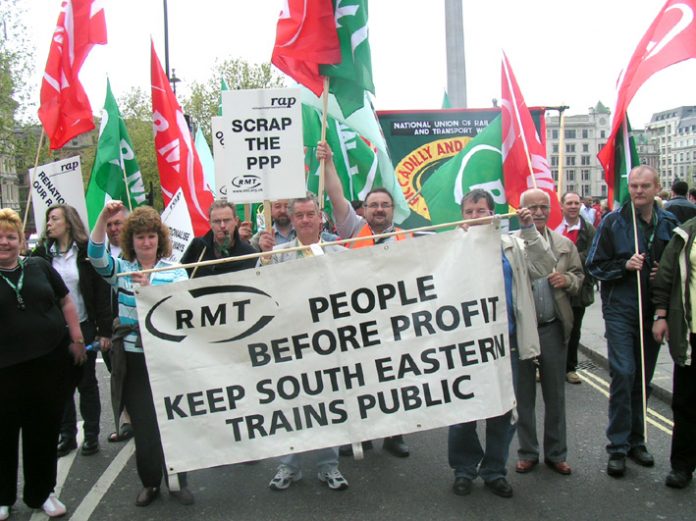ON THE eve of the fifth anniversary of the Potters Bar rail crash which killed seven people and injured 70, Britain’s biggest rail union has renewed its call for a joint public inquiry into Potters Bar and February’s Grayrigg derailment in Cumbria, which killed one passenger.
RMT general secretary Bob Crow said yesterday: ‘The alarming similarities between Potters Bar and Grayrigg underline the need for the industry to get to grips once and for all with the systemic engineering management problems that clearly still blight rail safety.
‘The assistant deputy coroner has already quite rightly adjourned the Potters Bar inquest because the questions facing it can only now be looked at in the light of the Grayrigg crash.
‘We have called for a public inquiry ever since Potters Bar, and since Grayrigg there has been a growing chorus urging the Transport Secretary to order a joint inquiry into both.
‘Establishing immediate causes is important, but an inquiry should be able to examine the adequacy of safety management systems and what RMT believes are the unacceptable risks still posed by the continued fragmentation of rail engineering.
‘For the bereaved and survivors of Potters Bar five years is already too long to wait for answers, and the government owes it to all those affected by both tragedies to end the waiting and announce that a full public inquiry will now be held.’
The RMT is calling on MPs to back Early Day Motion 1087, tabled by Ian Davidson MP and signed to date by 29 others.
This states: ‘That this House sends its sympathies to those directly involved in the Grayrigg derailment and their friends and families; places on record appreciation of the professionalism and courage of rail and emergency response staff; supports the view that the similarity to the Potters Bar crash of May 2002 raises concerns that the normal industry inquiries are insufficient to prevent a recurrence of this type of accident; therefore further supports the growing call for a public enquiry into the facts of both accidents; and believes that a public inquiry should consider the impact of the continued fragmentation of engineering work and whether bringing all railway activity under the control of one organisation will ensure that the safety of the public and the railway workforce is best protected.’
